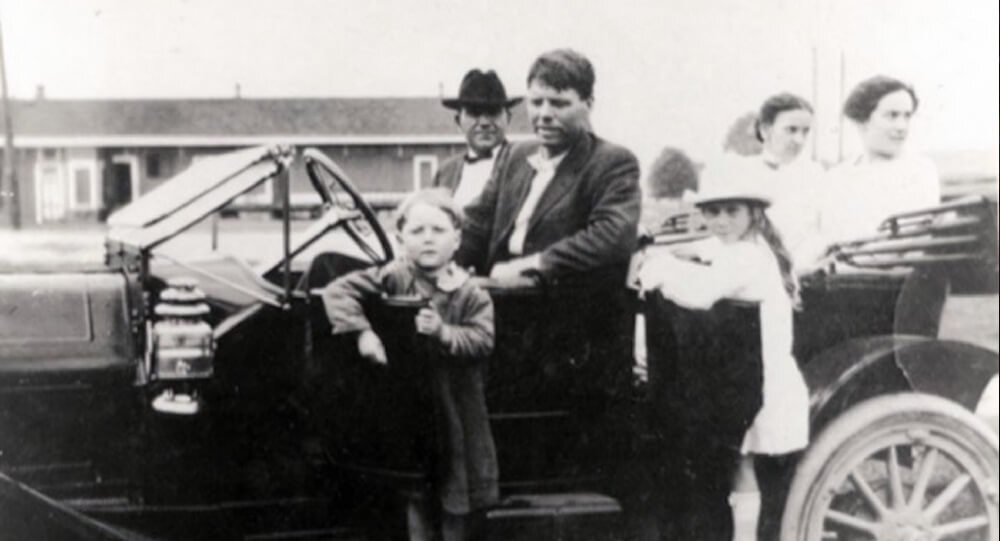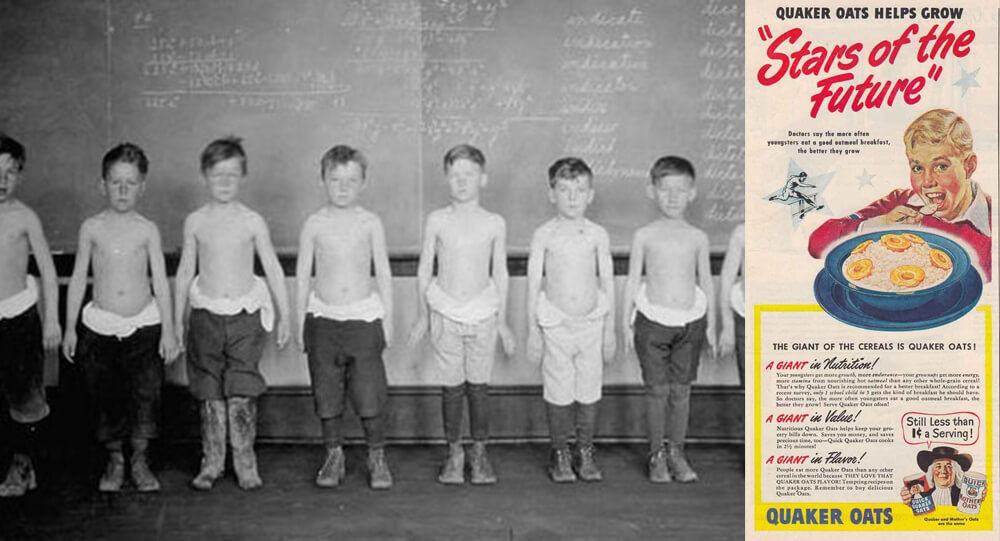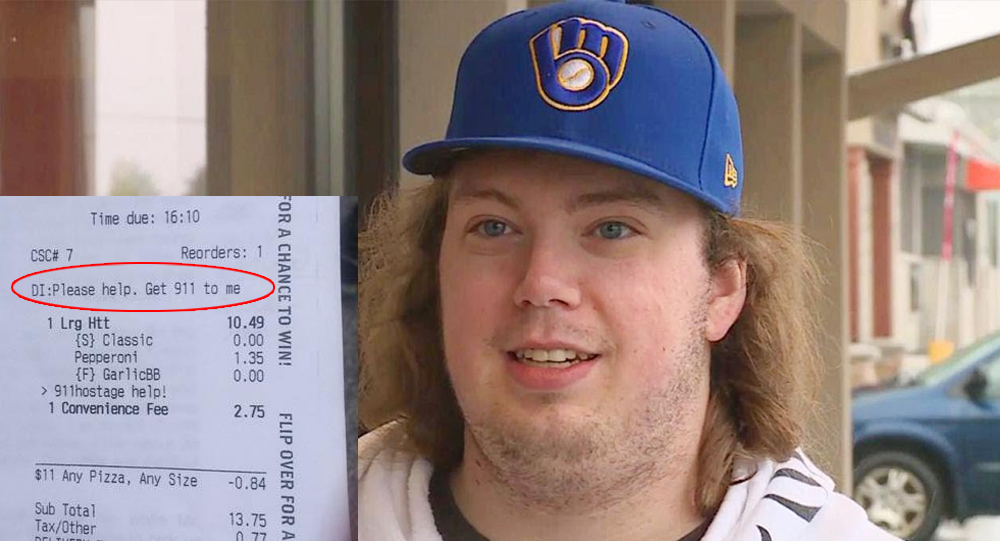

Japanese man accidentally switched at birth grew up in poverty while other baby lived life on privilege
While the baby who took his place in the hospital six decades ago went on to live a privileged life of private tutoring and university, and is now the head of a property firm, the Japanese man born to wealthy parents grew up in poverty.
The 60-year-old man, who has chosen not to reveal his name, was dependent on state assistance for his upbringing after the man he believed to be his father passed away when he was only two years old. As he grew up, there were few comforts in their one-room apartment because the woman he considered his mother had to support his three older brothers.
Before he was able to secure a stable job as a driver for a transportation business, the man had to attend night school while working day shifts in a factory. He never wed and now assists in caring for three men who are not his brothers, one of whom has had a stroke.
The baby who was given to the man’s biological parents was born at the San-Ikukai Hospital in Tokyo’s Sumida ward 13 minutes later, and he or she grew up in a relatively comfortable environment.
This young man attended a university, had a private tutor, and now runs a prosperous real estate business. According to news reports, all three of his brothers are employed by large corporations.
‘It is impossible to assess the scale of the pain and disappointment the parents and the man had to suffer’
It wasn’t until recently that his brothers began to wonder if he resembled any of his relatives at all.
When the family asked for access to hospital records in 2011, DNA tests later confirmed the error.
The mistake apparently occurred when a midwife bathed the newborn infants and then gave them back to the incorrect mothers.
The man sentenced to a life of hardship spoke to the media in Tokyo and described his shock at discovering that the people he had grown up believing to be his parents and brothers weren’t actually related to him.
He said, “I wondered how this could have happened. “I found it hard to believe. Sincerely speaking, I did not want to accept it.
The hospital was ordered by the Tokyo District Court this week to pay the man 38 million yen ($393,000) in damages as a result of the confusion, which is a significant decrease from the 250 million yen ($2.6 million) the plaintiffs had requested.
Judge Masatoshi Miyasaka stated in his decision that “the links between the man and his real parents were severed and the man was forced to grow up in a poor home.” “He went through a great deal of mental suffering.
The court found that there were “significant differences between the two family environments and the plaintiff suffered an unreasonable loss as a result.”
The man’s parents and the man had to endure unbearable pain and disappointment because they were denied the chance to enjoy their parent-child relationship for all time.
‘I could not believe it. To be honest, I did not want to accept it’
The man is still coming to terms with the effects of the events that occurred 60 years ago, and his biological parents both passed away before the error was discovered.
He said, “I might have had a different life. I want [the hospital] to turn the clock back to the day of my birth.
He is especially upset about never getting to meet his real parents.
As soon as he saw a picture of his parents, he said, “I wanted to see them alive.” I struggled for months to control my tears every time I saw their pictures.
He continued by saying that his mother might have sensed something was wrong. “I think my foster mother may have sensed it,” he admitted, pointing to the physical differences between himself and his brothers.
Because the 10-year statute of limitations had passed, the hospital initially sought to have the case dismissed. The court rejected that argument and determined that the statute of limitations only applied after the confirmation of the DNA test results.
The hospital has not indicated whether it will challenge the judgment in court.

Susan Kuhnhausen Killed the Hitman Sent to Kill Her
Susan Kuhnhausen's ex-husband hired a hitman to assassinate her. Susan "made a decision to live" in that terrifying moment.

A man faked his death in 2016 after his Mexican wife plotted to kill him by paying a hitman $2,000
In 2016, a guy faked his death after his Mexican wife plotted to murder him by hiring a hitman $2,000. He cooperated with the FBI to create fake murder images, which landed his wife in jail for 20 years.

The truth behind the murder of Cara Knott
After the murder of Cara Knott in 1986, a local news station filmed a ride-along segment with a highway patrol officer named Craig Allen Peyer who talked about women’s safety and gave tips on what to do when stranded on the road. That same officer later turned out to be the “Knotts killer.” He was convicted of the crime in 1988.

Chilling Story Behind the Amber Hagerman’s Murder And The AMBER alert system
Amber Hagerman is the reason we have the Amber alert or a child abduction emergency alert system. As of April 2019, 957 children rescued specifically because of AMBER Alert. To this day, the Amber behind Amber alert is still waiting for justice.

Story of Dennis Lynn Rader, the BTK Killer
Dennis Lynn Rader is an American serial killer known as BTK who worked for a home security company and installed systems in the homes of numerous citizens who were concerned about the murders he himself had committed.

The Horrific story of Ariel Castro and the Cleveland abduction
Cleveland abduction victims Gina DeJesus, Michelle Knight, and Amanda Berry were forced to live in Ariel Castro's house of horrors for 10 years. He raped and beat them until they escaped in 2013.

The story of Nike's famous tagline "Just do it"
Nike’s inspiration for their slogan “Just do it.” came from a man who was about to get executed, and his final words to the firing squad was “let’s do it!”

The youngest person executed, George Stinney Jr was proven innocent
In 1944, George Stinney Jr. was 14 years old when he was executed in South Carolina. It took only ten minutes to convict him — and 70 years to exonerate him.

The Unsolved mystery of Bobby Dunbar's Disappearance
In 1912, a four-year-old boy named Bobby Dunbar went missing on a family trip, 8 months later he was found and reunited with his family. Nearly a century later, DNA testing of his descendants revealed that the child reunited with the Dunbar family was not Bobby, but rather a boy named Charles (Bruce) Anderson who resembled Bobby.

A woman finds her ex-boyfriend living in her attic 12 years after they broke up
Most people have heard of "things that go bump in the night," but for one South Carolina lady, that "thing" was her ex-boyfriend, whom she discovered living in her attic more than 12 years after they broke up.

In 2018, a 30-year-old survived a close-range gunshot thanks to silicone implant
In 2018, a 30-year-old woman from Toronto, Canada survived a close-range gunshot thanks to her silicone breast implant. Doctors believe that the implant deflected the bullet away from her vital organs, and her only injury was a fractured rib.

Reason Behind The Suicide Of Christine Chubbuck Live On Air
Actor Rebecca Hall had serious reservations about tackling the macabre story around why Chubbuck killed herself in 1974. So what changed her mind?

Scientists separated triplets at birth for a controversial experiment and had no idea what they were doing
As part of an experiment, a set of triplets was intentionally separated at birth and given to three sets of parents from different socioeconomic backgrounds. It was discovered in 1980, when two of the triplets attended the same college.

Andre Stander: The Police Officer Who Became a Bank Robber
Like scenes from a blockbuster movie, Andre Stander robbed Banks during his lunch breaks and returned to the scene as the lead investigating officer

A woman accidentally tipped $7,723 for coffee and some cake and never get the money back
In 2018, a woman accidentally paid $7732 for a cup of coffee and a cake at a Swiss café after accidentally entering her PIN code as a tip. She never received a refund.

Blanche Monnier: Imprisoned For 25 Years For Falling in Love
Blanche Monnier, she was a French woman noted for her beauty, she wished to marry an old lawyer that her mother disapproved of, so she locked her in a small dark room in her attic for 25 years.

Quaker Oats Fed Children with Radioactive Oatmeal
In the 1940s and 1950s, Quaker Oats and MIT conducted experiments on radioactive iron and calcium-containing cereal. The diet was part of a study to see if the nutrients in Quaker oatmeal traveled throughout the body. In January 1998, a $1.85 million settlement was reached for 30 victims who came forward.

Woman found guilty of murdering her husband after a parrot repeated the victim's 'last words'
In 2017, a woman named Glenna Duram shot her husband five times before attempting suicide. Soon after, the couple’s pet African Grey parrot, the only witness to the crime, started repeating the words “don’t f*****g shoot!” It is thought to have been the pair’s last exchange. Duram survived and was found guilty of first-degree murder.

The great robbery: 300 million yen robbery
In 1968, a car driven by bank employees was pulled over by a motorcycle cop claiming the car had been rigged with a bomb. The cop got under the car to “defuse” the device. When the car started to smoke, everybody ran. Then the “cop” just drove the car away. The 300M Yen robbery remains unsolved

Albert Einstein’s brain after it was stolen from his body
Albert Einstein's brain was taken by the opportunistic pathologist who performed his autopsy hours after he died and kept in two jars for 30 years. The stolen brain of Albert Einstein was preserved in a cookie jar for 30 years until being discovered by a journalist.

How a Pizza Delivery Saved a Hostage in 2015
A pizza delivery once helped end a hostage situation! In 2015, a pizza order placed by a woman being held hostage included a hidden message for help. The pizzeria staff alerted the police, leading to her rescue..!

The Birth of Stockholm Syndrome: The 1973 Bank Robbery That Changed Psychology
In 1973, a botched bank robbery in Stockholm, Sweden, led to a six-day hostage crisis, where captives began defending their captors—giving rise to Stockholm Syndrome. Strangely, one hostage later befriended a robber, and another raised money for their legal defense, baffling psychologists and law enforcement alike!

'Super obedient' lookout parrot trained by Brazilian drug dealers is seized by police
In 2019, police in Brazil seized a 'super obedient' lookout parrot trained by drug dealers. According to reports, the bird had been taught to alert criminals to police operations by shouting: "Mum, the police!" As soon as the police got close, he started shouting.

The 2007 Mauritanian Flight Hijacking That Passengers Turned Into Victory
In 2007, a tense hijacking aboard an Air Mauritania flight turned into an extraordinary story of quick thinking and passenger bravery. When a gunman took control mid-flight, the pilot covertly warned passengers in French—a language the hijacker didn’t understand—that a sudden bumpy landing was imminent and urged them to use the moment to overpower the attacker. The passengers bravely followed the plan, dousing the hijacker with boiling water and subduing him, transforming fear into triumph. This article relives the harrowing incident and highlights the courage that saved lives on board.

Recipient of suicide victim's heart kills himself 12 years later
In 1995, Sonny Graham received a transplanted heart from a suicide victim. He then committed suicide in the very same manner as the donor.

























